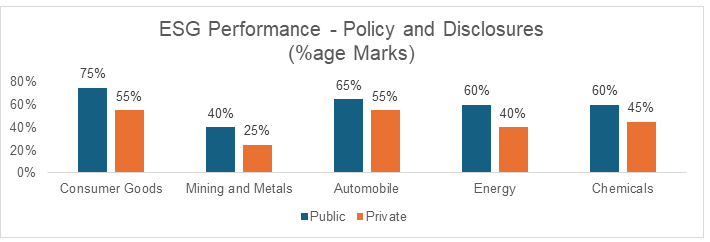ESG: Implementation, Reporting, and Internal Audit's Role
DOI:
https://doi.org/10.5281/zenodo.17043137Keywords:
internal audit, ESG practices, corporate decision-making, sustainability risk, risk management framework, consumer electronics, metals and mining, automobile industry, chemical industryAbstract
This paper explores the implementation, reporting, and role of internal audit in Environmental, Social, and Governance (ESG) practices within organizations. It examines the growing importance of ESG factors in corporate decision-making, the challenges associated with their implementation, and the role of internal audit in ensuring effective ESG reporting. A survey comprising nine questions was conducted, focusing on the Consumer Electronics, Metals and Mining, Automobile, and Chemical industries. The transition of ESG factors from conceptual and investor preferences to regulatory requirements presents challenges for all stakeholders, particularly in integrating sustainability risk factors into existing Risk Management Frameworks.
Downloads
References
Eccles, R. G., Ioannou, I., & Serafeim, G. (2014). The impact of corporate sustainability on organizational processes and performance. Management Science, 60(11), 2835-2857.
Friede, G., Busch, T., & Bassen, A. (2015). ESG and financial performance: Aggregated evidence from more than 2000 empirical studies. Journal of Sustainable Finance & Investment, 5(4), 210-233.
Institute of Internal Auditors (IIA). (n.d.). The IIA’s three lines model: An update of the three lines of defense.
KPMG. (2021). ESG reporting in India: Building trust and credibility.
PwC. (2020). ESG reporting: Getting started with reporting ESG information.
Sustainability Accounting Standards Board (SASB). (n.d.). Standards overview.
Task Force on Climate-related Financial Disclosures (TCFD). (2017). Recommendations of the task force on climate-related financial disclosures.
Clark, G. L., Feiner, A., & Viehs, M. (2015). From the stockholder to the stakeholder: How sustainability can drive financial outperformance. University of Oxford and Arabesque Partners.
Global Reporting Initiative (GRI). (2016). GRI standards. Retrieved from: https://www.globalreporting.org/
Harvard Law School Forum on Corporate Governance. (2018). The Role of the board in sustainability. Retrieved from: https://corpgov.law.harvard.edu/
Hsu, A. W. H., & Wang, T. (2013). Does the market value corporate response to climate change? Omega, 41(2), 195-206.
KPMG. (2020). The time has come: The KPMG survey of sustainability reporting 2020. KPMG International. Retrieved from: https://home.kpmg/xx/en/home/insights/2020/11/the-time-has-come-survey-of-sustainability-reporting.html
Liesen, A., Hoepner, A. G. F., Patten, D. M., & Figge, F. (2015) Does stakeholder pressure influence corporate GHG emissions reporting? Empirical evidence from Europe. Accounting, Auditing & Accountability Journal, 28(7), 1047-1074.
Lydenberg, S., Rogers, J., & Wood, D. (2010). From transparency to performance: Industry-based sustainability reporting on key issues. Harvard Kennedy School.
Rezaee, Z. (2016). Business sustainability research: A theoretical and integrated perspective. Journal of Accounting Literature, 36, 48-64.
Schoenmaker, D., & Schramade, W. (2019). Principles of sustainable finance. Oxford University Press.
United Nations Global Compact. (2015). Guide to corporate sustainability: Shaping a sustainable future. Retrieved from: https://www.unglobalcompact.org/library/1151
World Economic Forum. (2020). Measuring stakeholder capitalism: Towards common metrics and consistent reporting of sustainable value creation. Retrieved from: https://www.weforum.org/reports/measuring-stakeholder-capitalism-towards-common-metrics-and-consistent-reporting-of-sustainable-value-creation
Zadek, S., Evans, R., & Pruzan, P. (2013). Building corporate accountability: Emerging practice in social and ethical accounting and auditing. Routledge.

Published
How to Cite
Issue
Section
License
Copyright (c) 2025 Rashi Khattar, Gaytri Ramanathan, Shalini Kumar

This work is licensed under a Creative Commons Attribution 4.0 International License.
Research Articles in 'Management Journal for Advanced Research' are Open Access articles published under the Creative Commons CC BY License Creative Commons Attribution 4.0 International License http://creativecommons.org/licenses/by/4.0/. This license allows you to share – copy and redistribute the material in any medium or format. Adapt – remix, transform, and build upon the material for any purpose, even commercially.









